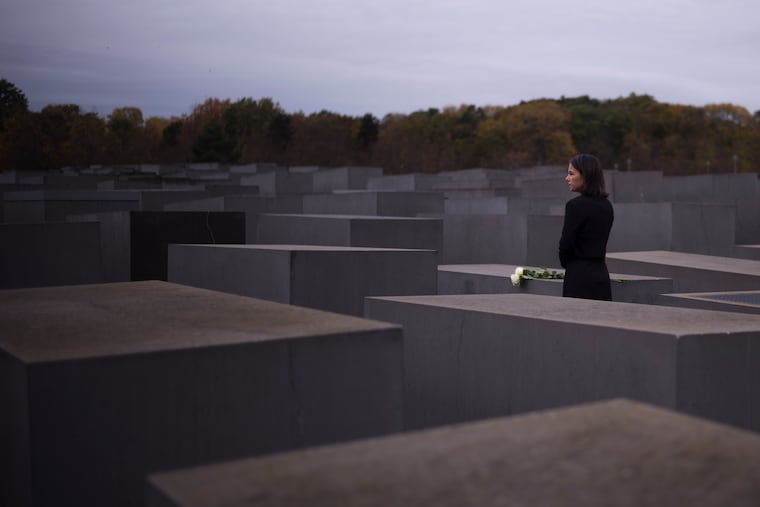“It has been said that history repeats itself,” Theodor Reik, a Jewish psychoanalyst, wrote in his 1965 book, Curiosities of the Self: Illusions We Have About Ourselves. “This is perhaps not quite correct; it merely rhymes.”
Sometimes, the attempts to get rid of history also rhyme.
As a German journalist visiting Philadelphia, I find a familiar echo in Donald Trump’s targeting of displays at national parks that “inappropriately disparage Americans past or living.” It reminds me of what my country’s far-right politicians call for doing with our own dark past: eradicate it.
“Rather than bringing the following generations in touch with the great benefactors, the well-known world-changing philosophers, the musicians, the genius discoverers and inventors, of whom we have so many,” Völkisch politician Björn Höcke said in 2017, German history, he claimed, “is slammed and ridiculed.”
Compare that with Trump’s Executive Order 14253, which posits that “rather than fostering unity and a deeper understanding of our shared past, the widespread effort to rewrite history deepens societal divides and fosters a sense of national shame, disregarding the progress America has made and the ideals that continue to inspire millions around the globe.”
The order — issued in March and titled, “Restoring Truth and Sanity to American History” — specifically names Independence National Historical Park as an example of the “corrosive ideology” it denounces and aims to “restore” in time for the nation’s Semiquincentennial next year. The directive is the basis for the U.S. Department of the Interior’s current effort to review texts, most prominently at the President’s House, about the role slavery played at the time of the nation’s birth.
Of course, the atrocities of slavery and those of the war, suffering, and genocide that Germany brought upon the world and its own Jewish, Romani, and queer population during the Nazi era are not the same. But the ways in which nationalistic ideologists today try to deny these historic realities are.
As a German, I am heavily indebted to America. Without the United States, my country would not be free, let alone one of the leading nations in the world today.
It is often claimed that Germany has reckoned with its past. Probably the most eager to claim that are Germans themselves. We even have a word for it: Erinnerungsweltmeister — the world champions of memory. If you have messed up so badly, you have to find your pride somewhere.
This claim is only partly justified. The Nazi years are dealt with extensively in school. In the streets of nearly every German region, you will find small golden Stolpersteine, “stumbling stones,” in the pavement before the houses in which deported Jews used to live, to memorialize them. Since 2005, in the city center of Berlin, right next to the federal parliament, stand the 2,711 gray concrete stelae that constitute the 4.7-acre Memorial to the Murdered Jews of Europe.
But in spite of all that, remembrance was always contested. And it is still.
In 1986, two in three Germans said the Nazi years should be “left behind” and not be talked about so much. In 2005, 54% still agreed with that. After a decline in 2018, when 45% argued in favor of setting history aside, the number rose again to 55% this year, mirroring the rise of the far-right Alternative für Deutschland, known as the AfD, which is now Germany’s second-largest political party despite being considered a danger to democracy.
The decision to build the Berlin Holocaust memorial wasn’t an undisputed one, either. In 1998, influential author Martin Walser called it the “concreting of the capital’s city center with a nightmare the size of a soccer field.” In 2017, Höcke, one of the AfD’s most dominant figures, voiced that Germans are the “only people in the world that has planted a memorial of shame in the heart of its capital.”
But memorials keep people from letting history be just the past. They make it present. They confront you with it every day. Thus, they become a target for those who’d prefer to not see, not hear, not talk about reality.
The global right is on the hunt for historical facts. It aims for national pride through denial. But that is a fragile basis. It ultimately means that the horrors can happen again, because the heirs refuse to learn from them.
Like it or not, the past lives on. You cannot get rid of it. If you try, you risk a vicious cycle of defiance and hate.
Both America and Germany deserve better.
Adrian Schulz is a journalist with Der Tagesspiegel in Berlin and an Arthur F. Burns fellow at The Inquirer.
